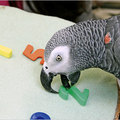 Vince Natale
Vince Natale Rupert Murdoch finally won his long-coveted prize yesterday, gaining enough support from the deeply divided Bancroft family to buy Dow Jones & Company, publisher of The Wall Street Journal and one of the world’s most respected news sources, for $5 billion. Dow Jones said early today that the companies had signed a definitive merger agreement after the boards of both companies voted last night to approve the deal.
For Mr. Murdoch, the verdict represents the pinnacle of his long career building the News Corporation into a $70 billion media empire that already includes more than 100 newspapers worldwide, satellite broadcast operations, the Fox television network, the online social networking site MySpace and many other parts.
Combined with the planned beginning of the Fox business news channel in October, the purchase of Dow Jones makes Mr. Murdoch the most formidable figure in business news coverage in this country, perhaps worldwide.
It also gives a larger voice in national affairs to an owner whose properties often mirror his own conservative politics.
The decision signals the end of an era for Dow Jones and the Bancroft family, an intensely private clan that for generations had allowed The Journal to operate independently and become one of the nation’s most prominent and trusted newspapers, even as its finances deteriorated.
Dow Jones said today that family trusts and family members representing about 37 percent of the total shareholder vote had committed to support the deal.
For four months, some three dozen members of the family had engaged in an intense, sometimes tearful debate about The Journal’s future, at times pitting siblings against one another and children against their parents.
The final decision was in doubt well past the 5 p.m. Monday deadline set for the family. In a twist in already tortured negotiations, some family trustees demanded that the News Corporation pay the fees for the family’s bankers and lawyers — which could reach $40 million — in return for their support. After an exhausting night of conferences calls, the deal was made.
James B. Lee of JPMorgan Chase & Company, who has represented clients in some of the biggest deals in history, said of Mr. Murdoch, “nobody else I have ever banked could have pulled it off.”
For the rest of the industry, the deal, which follows the recent sale of Knight Ridder and the pending sale of the Tribune Company, again raises the question of whether newspapers can exist independently of giant media conglomerates, as advertising dollars migrate to the Web and readers have access to vast new sources of online information.
Mr. Murdoch has talked of pumping money into The Journal, bolstering its coverage of national affairs and its European and Asian editions, which could pose a serious challenge to competitors like The Financial Times and The New York Times. That could mean losing money in the short run, something Mr. Murdoch has always been willing to do to attract readers and gain influence.
Some Dow Jones employees see having such a wealthy, engaged owner as an improvement after years of uncertainty. Still, there was no official announcement at The Journal’s newsrooms, where some reporters mourned the loss of independence.
“It’s sad,” said a veteran reporter at one of the domestic bureaus, who did not want to be named because of concerns over his career. “We held a wake. We stood around a pile of Journals and drank whiskey.”
News reports of the deal initiated an outpouring of comments on The Journal’s own Web site, many critical of the News Corporation, and some regrets from other shareholders.
“It’s a bad thing for Dow Jones and American journalism that the Bancroft family could not resist Rupert Murdoch’s generous offer,” James H. Ottaway Jr., a former Dow Jones executive and a major shareholder, said yesterday. “I hope Rupert Murdoch, and whoever follows him at News Corporation, will keep his promises to protect and invest in the unique quality and integrity of The Wall Street Journal, Barron’s and all the Dow Jones electronic news services.”
It will most likely take three to four months for the transition in ownership to take effect. At the family’s insistence, the News Corporation has agreed to retain the top editors at Dow Jones, including Marcus W. Brauchli, the managing editor of The Journal and Paul Gigot, The Journal’s editorial page editor, and has accepted limits on its ability to remove or replace people in those posts.
The Bancrofts hope the arrangement, which they negotiated before the final deal, will restrict Mr. Murdoch’s ability to influence content, particularly in The Journal, but many media experts have said he has circumvented similar agreements in the past.
Mr. Murdoch first made his offer to Dow Jones’s chief executive, Richard F. Zannino, over breakfast on March 29, and made a formal written bid to the board on April 17, but the news did not surface until May 1.
On May 2, Mr. Zannino made a presentation to the Dow Jones board that made it seem to many of them that the company’s prospects on its own were poor and that he favored a sale. He later insisted that he had not meant to give those impressions, but even so, the presentation had a sobering effect, and most of the board clearly thought that the company should accept Mr. Murdoch’s $60-a-share offer.
That breakfast with Mr. Murdoch set in motion a four-month struggle among the Bancrofts. The family, which has owned Dow Jones since 1902, holds 64 percent of the shareholder vote, with most of the stock held in dozens of trusts with some three dozen beneficiaries. But the bulk of the voting power rests with a handful of the family’s oldest generation, and with longtime family lawyers, who are the primary trustees.
Some argued vociferously that Mr. Murdoch would damage the newspaper’s credibility, while others said that his $60-a-share offer — for a stock that was trading around $36 in April — was too good to pass up at a time when the newspaper industry was struggling.
At the outset, most of the elders opposed a sale, and were bolstered by newsroom employees who wrote letters arguing that Mr. Murdoch would wreck The Journal, and by the advice of longtime associates like Peter R. Kann, the recently retired former chairman and chief executive of the company, and Mr. Ottaway.
But many of their children, less wealthy and less steeped in the notion of Dow Jones as a family legacy, were more open to selling. A family Dow Jones stake that had been valued at about $750 million and generated about $20 million a year in dividends, mostly for the older generation, stands to become more than $1 billion even after taxes and could produce several times as much income.
Late last week, it appeared that the family might reject the deal, but then two pivotal family elders who had argued against the deal, Jane Cox MacElree and her brother, William C. Cox Jr., shifted positions; she relinquished voting control of some shares, and he switched sides and decided to support the sale, people close to the family said. That left things too close to call.
While the weeks after May 2 had been spent arguing over principles, the last few days were spent haggling over money. Before the deal had a clear majority in support, a lawyer for the family, Lynn Hendrix, based in Denver, who controlled trusts with 9 percent of the overall vote, insisted that those trusts would oppose the deal unless the News Corporation agreed to pay a premium for the supervoting shares that are mostly owned by the Bancrofts.
On Sunday night, David F. DeVoe, the News Corporation’s chief financial officer and a board member, called Mr. Hendrix, a partner at the firm Holme, Roberts & Owen, to draw a line in the sand.
Referring to the $60 price, Mr. DeVoe said, “I can six-zero-point-zero-zero,” a person briefed on the conversation said, “not six-zero-point-zero-one.”
When Mr. Hendrix kept pushing for more money, Mr. DeVoe made an unusual offer: the News Corporation would consider paying the fees and expenses of the bankers and lawyers advising the trusts. That amounted to an indirect way of sweetening the offer for the supervoting shares without adding much to the cost of the deal. Dow Jones, after consulting with the News Corporation, had already agreed to cover some of the costs of paying Merrill Lynch, the family’s primary financial advisers.
After a marathon series of conference calls that night that ran through Monday, involving Mr. DeVoe; Mr. Hendrix; Michael B. Elefante, the family’s primary lawyer and trustee; and Richard Beattie, a lawyer advising the Dow Jones board, a deal was brokered that would allow the Denver trust to vote in favor. The News Corporation agreed to pay advisory expenses for all of the family trusts, a figure that people involved in the talks said could reach $40 million, which translates to about an additional $2 a share for the Bancrofts.
The largest share, perhaps as much as $18.5 million, will be paid to Merrill Lynch, people briefed on the matter said. Another payment of as much as $10 million is expected to be paid to Wachtell, Lipton, Rosen & Katz, a law firm representing the family. Morgan Stanley, which advised the Denver trusts, and a series of law firms are expected to split the rest.
The issue of the News Corporation and Dow Jones paying the family’s advisers has raised questions in some circles — including among some family members, people close to them say — about the advice’s impartiality. Merrill Lynch, in particular, was viewed as an early supporter of the deal and was responsible in large part for making presentations to the family about the current and future health of Dow Jones.
The deal is also a windfall for an army of Mr. Murdoch’s bankers and lawyers. Mr. Murdoch was advised by Mr. Lee, who had helped Mr. Murdoch when he explored a bid for Dow Jones in 2001 and had set up Mr. Murdoch’s first introduction to Mr. Zannino.
Blair Effron, a former banker at UBS who started his own boutique firm, Centerview Partners, spent many nights holed up at Mr. Murdoch’s headquarters, as did Stanley S. Shuman of Allen & Co., the media investment bank.
To the last, people inside and outside Dow Jones who opposed the sale were trying to arrange alternative deals that would allow some Bancroft family members to sell and others to keep control of the company.
Yesterday, Leslie Hill, a family member and trustee who became something of a patron saint within the Journal’s newsroom for her opposition to the deal, resigned from the company’s board.




